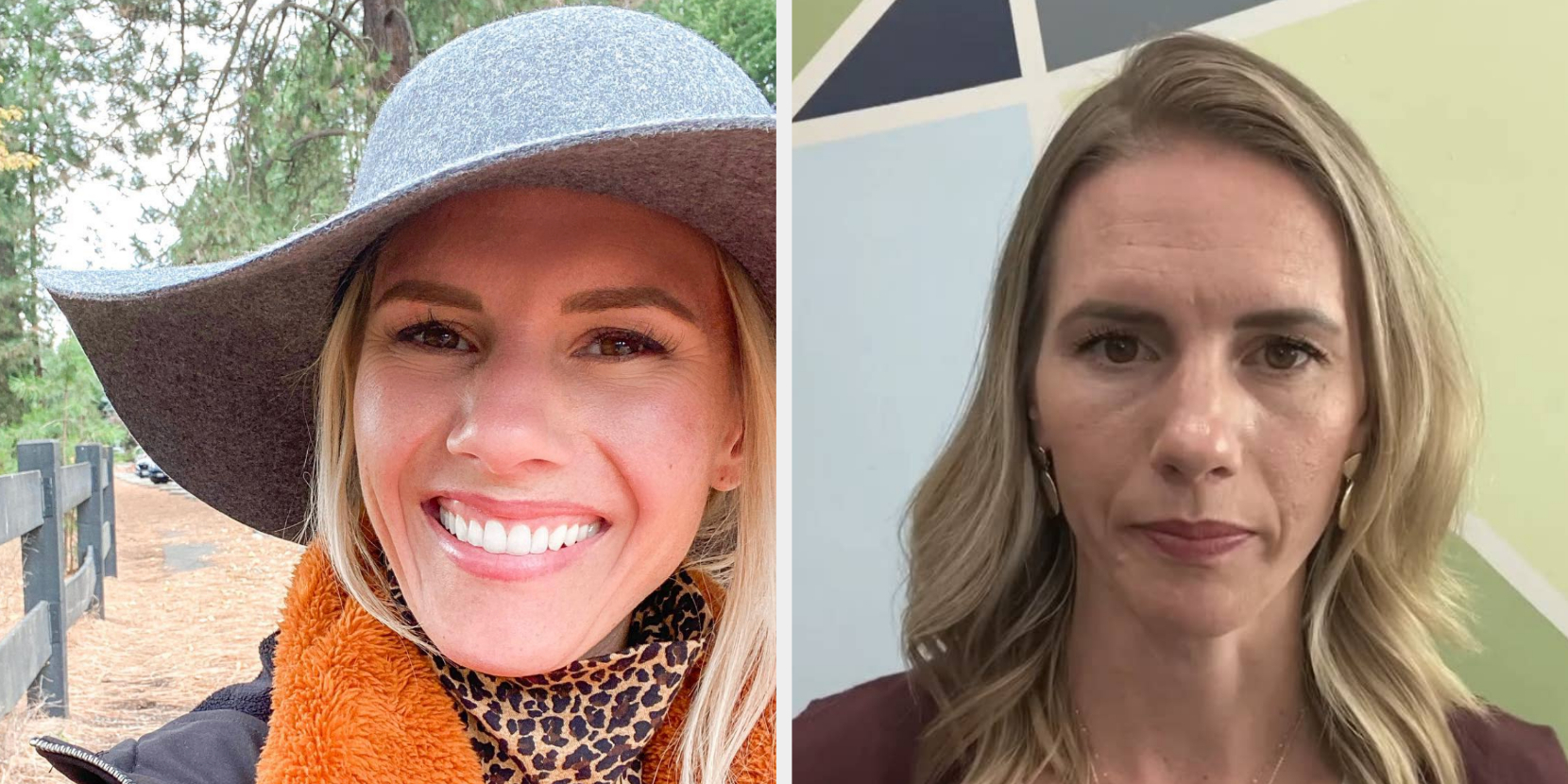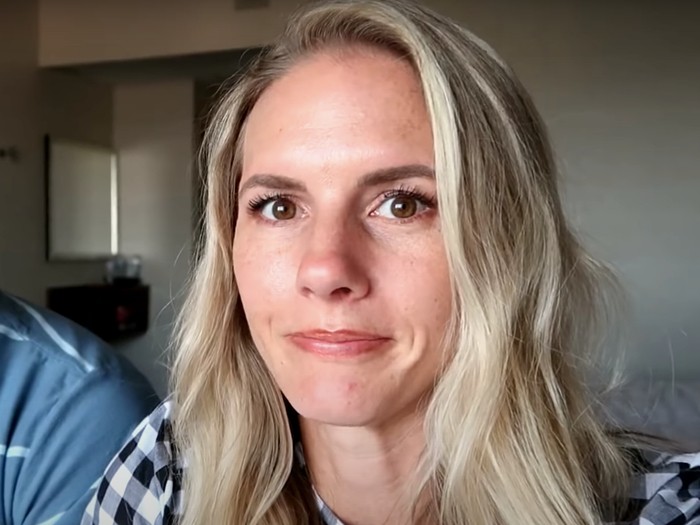The case involving Ruby Franke, a prominent figure known for her family-oriented YouTube channel, “8 Passengers,” has stirred widespread controversy and concern. This article delves into the intricacies of the allegations, the public’s reaction, and the broader implications for content creators and parental responsibilities.
The Rise of “8 Passengers”
Ruby Franke catapulted to fame with her YouTube channel “8 Passengers,” launched in 2015. The channel, chronicling the daily life of the Franke family, quickly amassed a significant following, drawn by its portrayal of family dynamics, parenting challenges, and the joys and tribulations of raising six children. Ruby, alongside her husband, Kevin Franke, presented a narrative that resonated with many for its relatability and candidness.
Surfacing Allegations
However, beneath the veneer of familial bliss, concerns began to surface. Viewers and critics started pointing out instances of what they perceived to be harsh parenting practices. These included severe punishments, such as depriving children of meals and isolating them from family activities as disciplinary measures. The turning point came when allegations of child abuse were levied against Ruby Franke, leading to a public outcry and a reevaluation of the content shared on “8 Passengers.”
The Legal and Social Fallout
The allegations against Ruby Franke quickly transcended the realm of public opinion, attracting the attention of child protection services and law enforcement agencies. Investigations were launched to ascertain the veracity of the claims, scrutinizing the family’s interactions on and off-camera. The legal proceedings, still ongoing, have cast a shadow over the Franke family, prompting discussions about the responsibilities of social media influencers and the potential impact of their content on vulnerable members of their families, particularly children.

Public Reaction and Criticism
The court of public opinion was swift in its reaction. The Franke family faced widespread criticism, with many calling for a boycott of their YouTube channel and social media platforms. Critics argue that the family’s monetization of their personal lives crossed ethical boundaries, exploiting the children’s experiences for financial gain. However, supporters of the Franke family caution against rushing to judgment, emphasizing the importance of due process and the nuances of parenting in the digital age.
The Ethical Dilemma of Family Vlogging
The Ruby Franke case has reignited debates around family vlogging and the ethical considerations it entails. Questions have been raised about the consent of children featured in such content, the psychological impact of growing up in the public eye, and the balance between storytelling and exploitation. Critics argue that the lack of regulation in this sphere opens the door to potential abuses, calling for more precise guidelines and protective measures for child influencers.
Implications for Content Creators
Content creators, particularly those focusing on family life, are at a crossroads. The Franke case serves as a cautionary tale, highlighting the need for transparency, ethical conduct, and a heightened awareness of the impact of their content. It underscores the importance of boundaries between public personas and private lives, urging creators to consider the long-term well-being of their children over immediate gains in viewership or revenue.

The Role of Social Media Platforms
The involvement of social media platforms in the Ruby Franke case cannot be understated. Platforms like YouTube have come under scrutiny for their policies regarding content that may potentially exploit children. The debate centers around the responsibility of these platforms to monitor and regulate content, ensuring it does not harm the physical or mental well-being of minors. This situation has prompted calls for stricter guidelines and more proactive measures from social media companies to prevent exploitation and ensure a safe environment for all users, especially children.
Legal Implications and Child Protection Laws
The legal ramifications of the Ruby Franke case highlight the intersection between social media fame and child welfare laws. It raises significant questions about the adequacy of current legal frameworks to address the unique challenges presented by the digital age. Jurisdictions may need to adapt or introduce new legislation that specifically addresses the exploitation of children on social media, ensuring that children’s rights are protected in both the physical and digital worlds. This case could catalyze such legal reforms, emphasizing the need for laws that keep pace with technological advancements.
Psychological Impact on Children
An often-overlooked aspect of cases like Ruby Franke’s is the psychological impact on the children involved. Growing up in the public eye, with every moment subject to scrutiny and criticism, can profoundly affect a child’s development, self-esteem, and privacy. Experts warn of the potential long-term consequences of such exposure, including anxiety, depression, and issues with identity and self-worth. This situation underscores the need for parents and content creators to prioritize the mental health and well-being of their children above the pursuit of fame or financial gain.
Parenting in the Digital Age
Parenting in the digital age presents many challenges, as the Ruby Franke case demonstrates. Blending public and private lives facilitated by social media requires parents to navigate a complex landscape. They must balance the desire to share their family’s experiences with the need to protect their children’s privacy and well-being. This case serves as a wake-up call for parents everywhere to critically assess the impact of their online activities on their children and to make informed, conscientious decisions about what they choose to share with the world.
:max_bytes(150000):strip_icc():focal(711x134:713x136)/ruby-franke-8-passengers-090623-07026b858e5140d5945d21abc9bbe58c.jpg)
The Power of Public Opinion
The court of public opinion has played a significant role in the Ruby Franke case, influencing perceptions and potentially impacting the outcomes. The swift backlash against Franke highlights the power of social media users to effect change and hold individuals accountable. However, it also raises questions about the rush to judgment and the potential for misinformation to spread rapidly. This dynamic underscores the importance of critical thinking and responsible sharing of information among the public, especially in cases involving sensitive allegations of child abuse.
Moving Forward: Lessons Learned
The allegations against Ruby Franke have brought to light critical issues surrounding child welfare, parental responsibility, and the ethics of sharing personal lives for public consumption. As the legal process unfolds, content creators, viewers, and regulators must reflect on the lessons learned from this case. Striking a balance between storytelling and safeguarding the interests of all involved, especially children, is imperative. The Franke case’s conversation may lead to a more conscientious approach to family vlogging, ensuring that the well-being of children is never compromised in the pursuit of online popularity.
Conclusion
The Ruby Franke case is a complex amalgamation of family dynamics, social media influence, and legal scrutiny. As it unfolds, it serves as a pivotal moment in the discourse on digital ethics, parental responsibility, and protecting children in the spotlight. The outcome of this case may well set precedents for how similar situations are handled in the future, urging all stakeholders to navigate the delicate balance between public interest and personal privacy with empathy, integrity, and a paramount concern for the welfare of the youngest members of our society.

